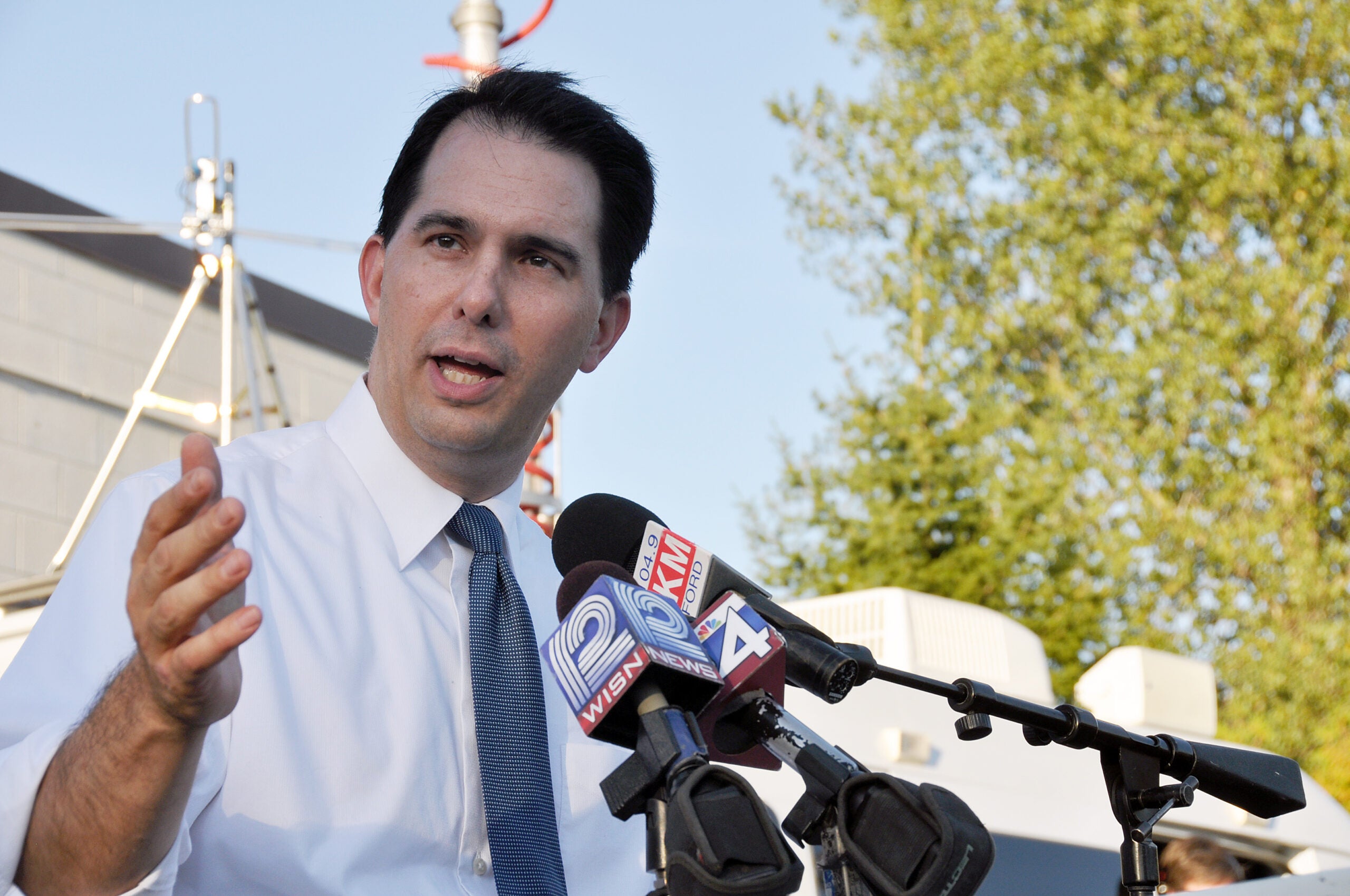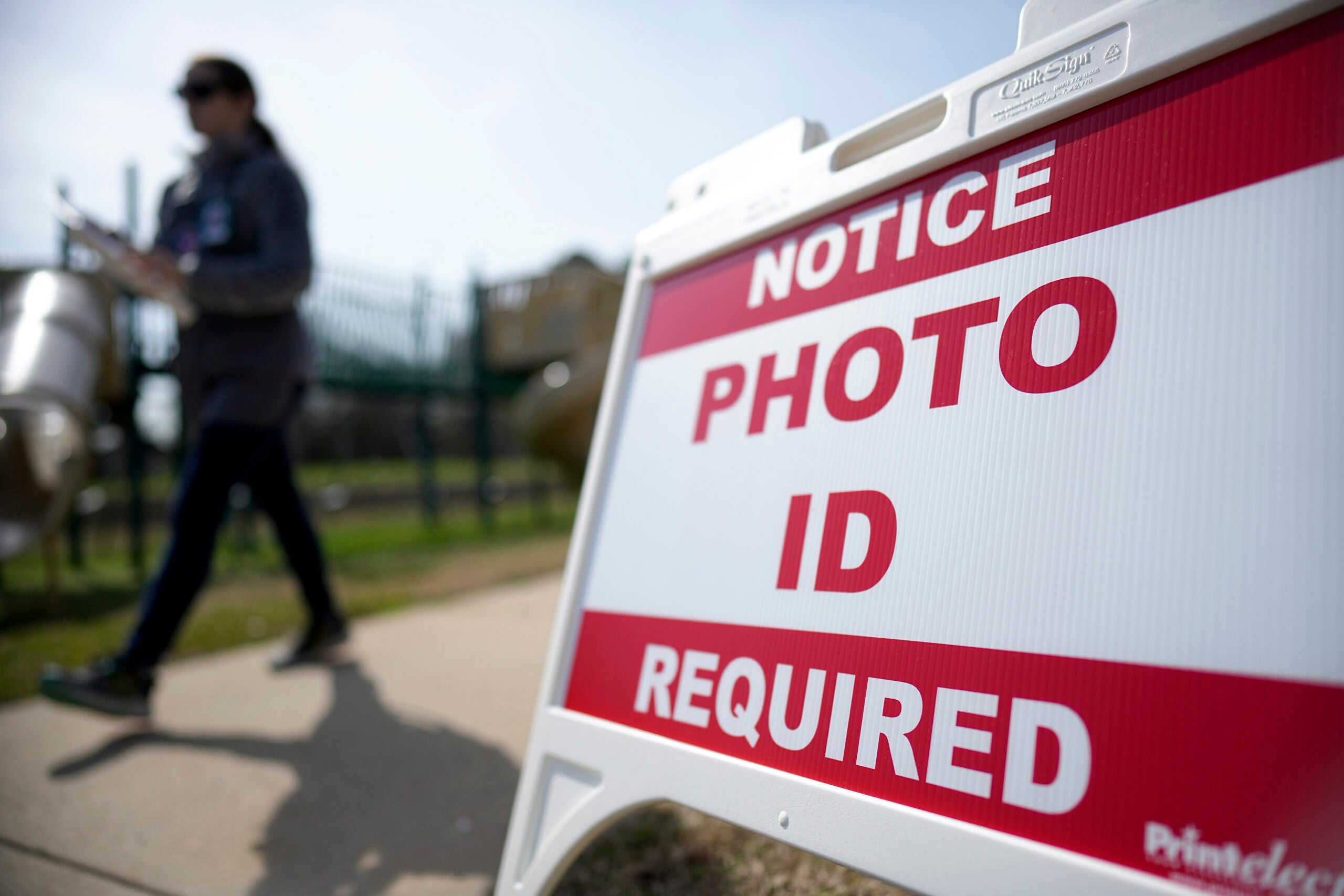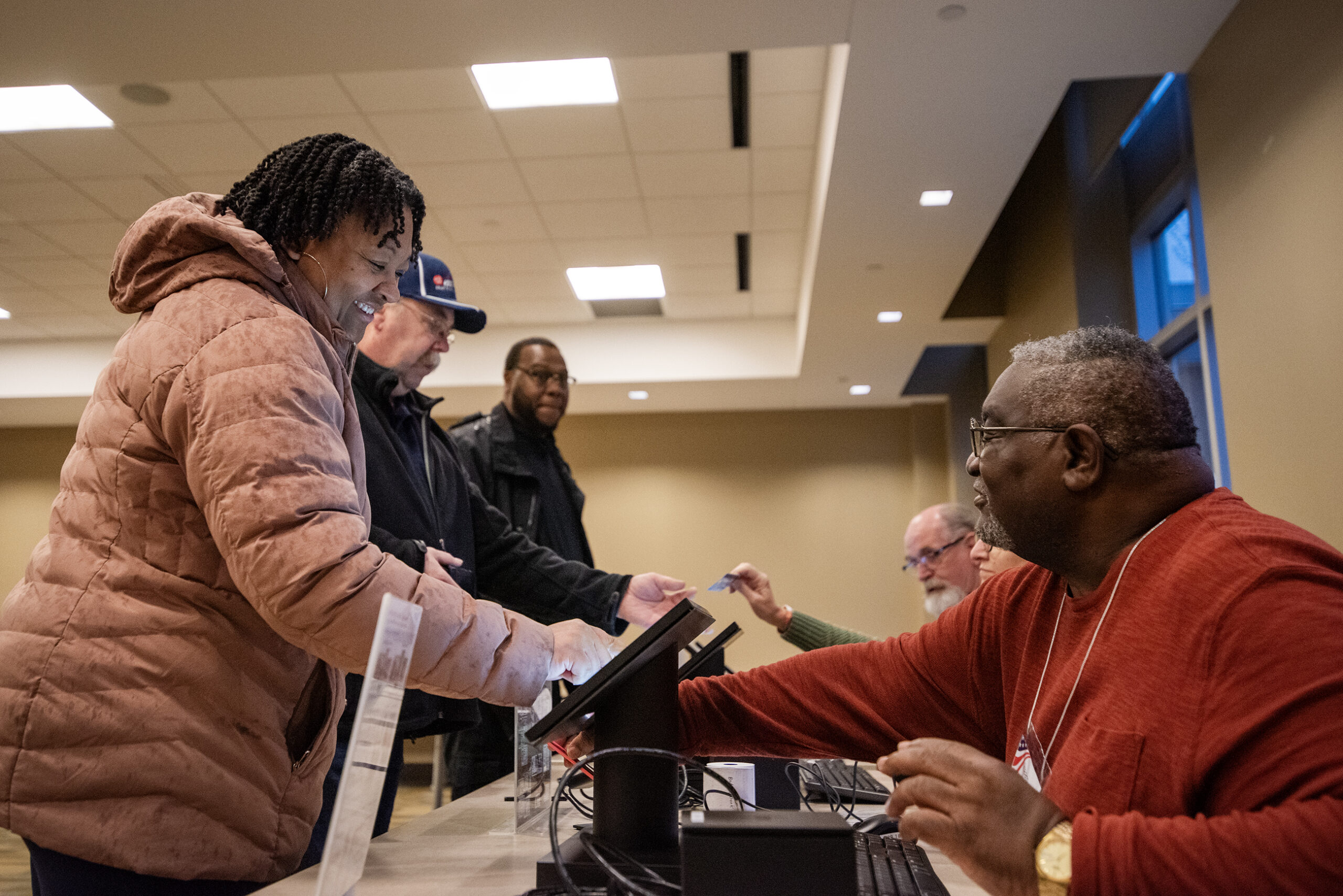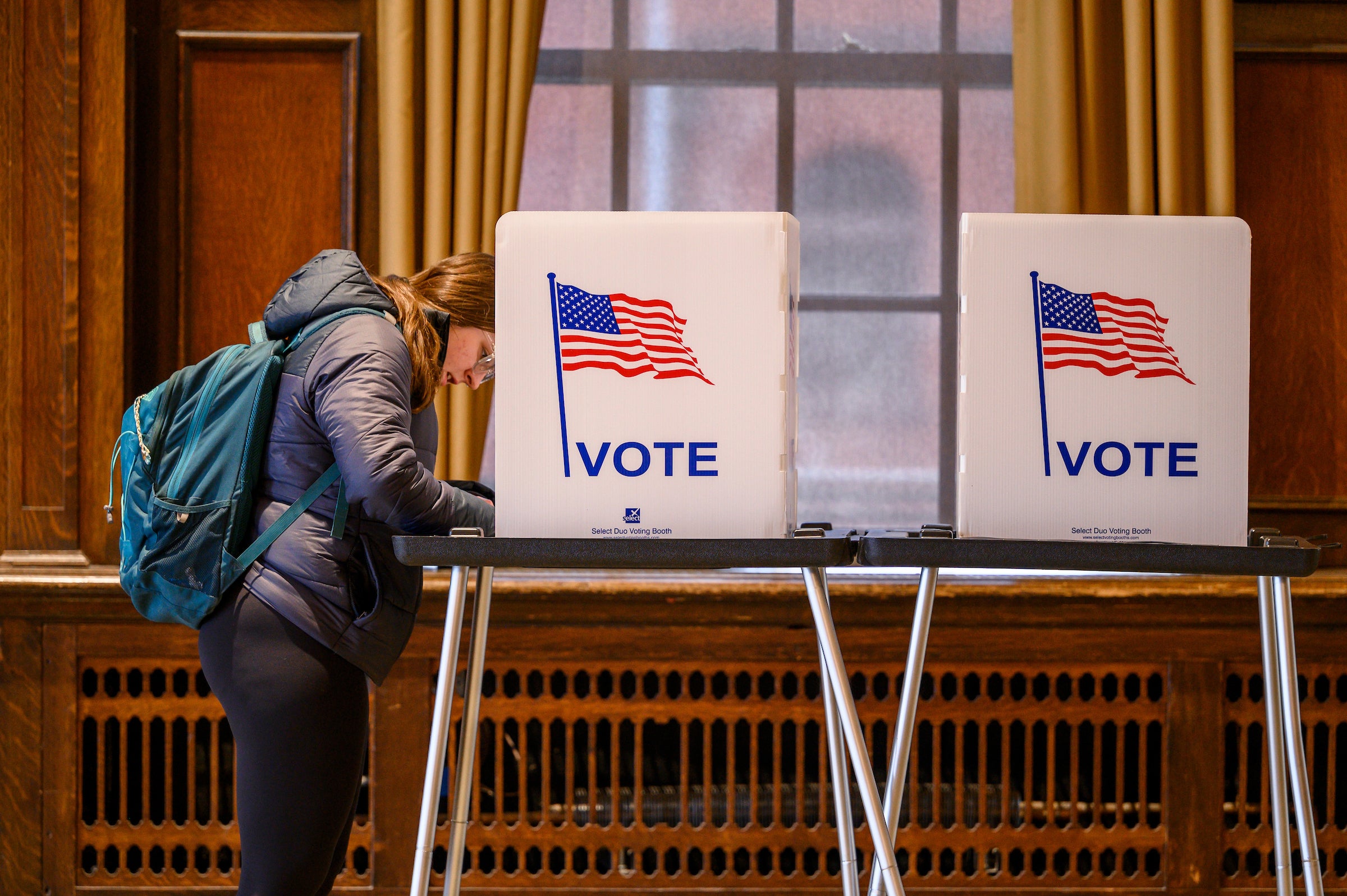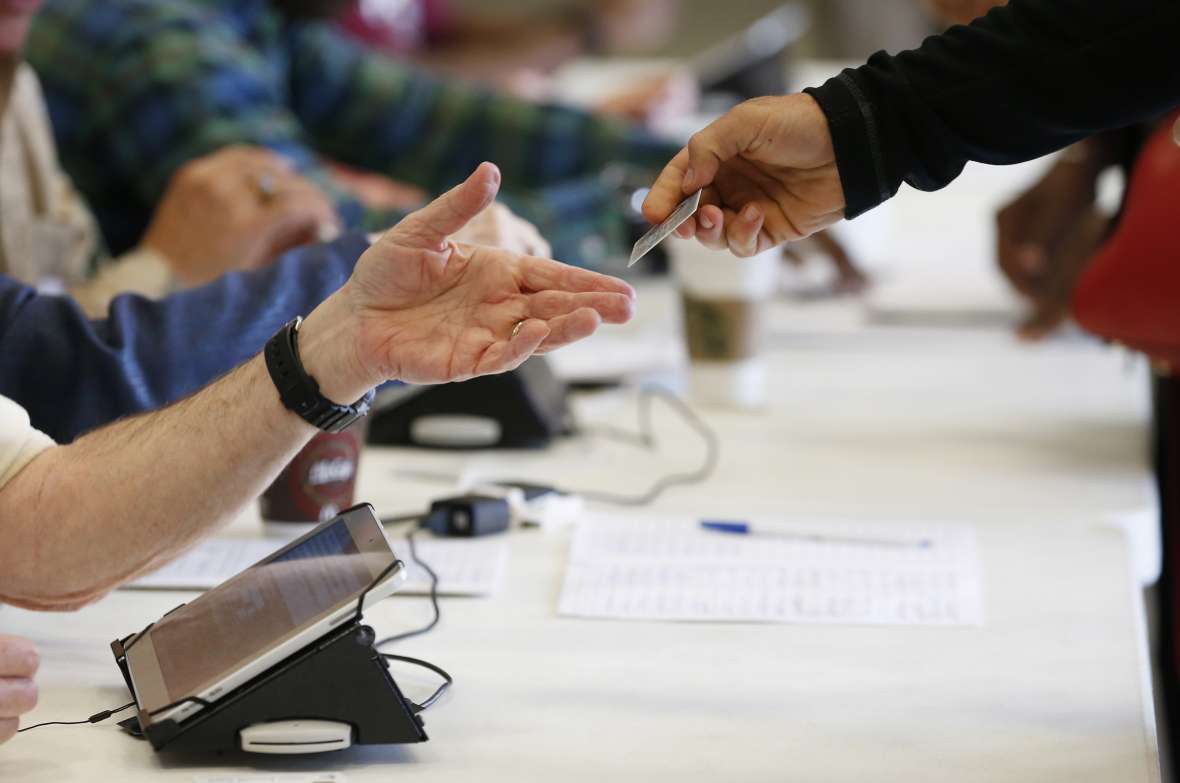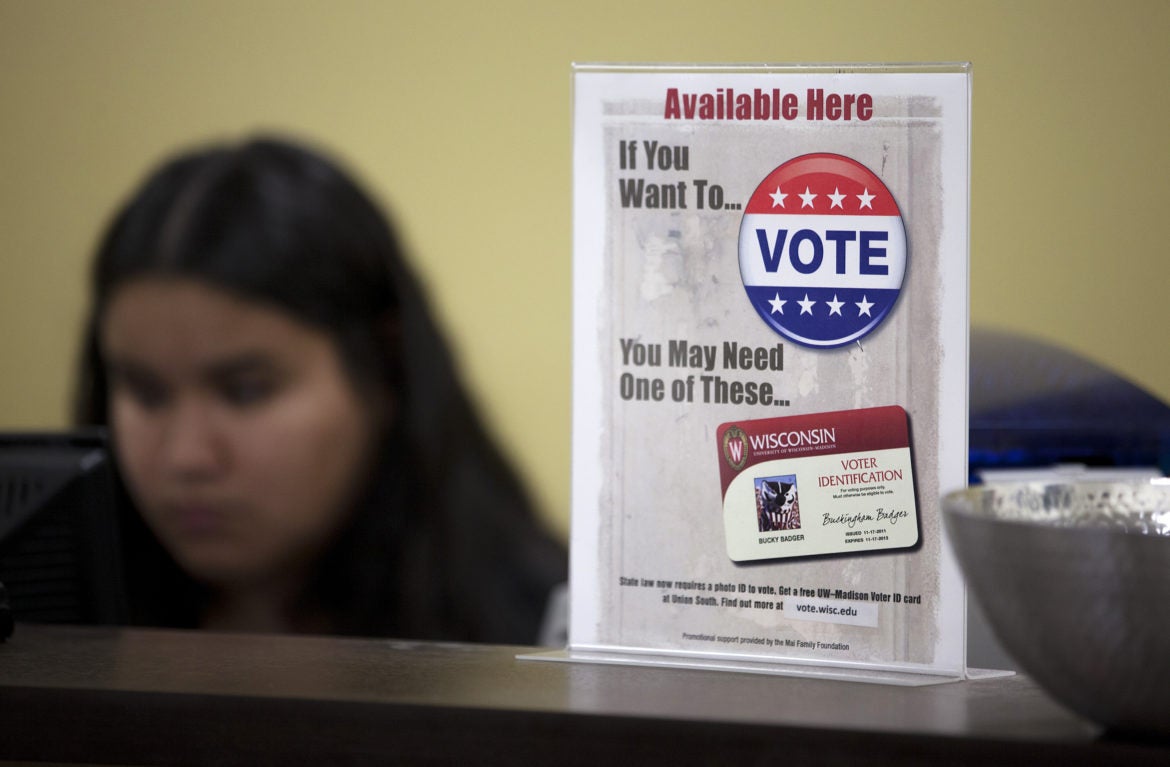Gov. Scott Walker says attorneys with the state Department of Justice say changes are needed to the state’s voter ID law to keep it from being struck down in court – changes the state Senate isn’t yet prepared to make.
With the Wisconsin Supreme Court and a federal circuit court ready to rule on the constitutionality of a voter ID law passed by Republicans in 2011, Walker says state attorneys defending it are urging lawmakers make some tweaks.
“Attorneys feel both for the Supreme Court and the federal court looking at the voter ID legislation … that it probably would be appropriate for the Legislature to make some slight adjustments that would address some of the concerns we’ve heard throughout that process,” said Walker.
Stay informed on the latest news
Sign up for WPR’s email newsletter.
Walker says a new voter ID bill passed by the Assembly in November would likely take care of those concerns and pass constitutional muster.
“There’s a bill in the Assembly, I think, that makes those sorts of changes,” said Walker. “I’d like to see the Senate bring that up before they adjourn. I think that would allow voter ID to go forward in a way that would be upheld by the courts going forward.”
Walker is referring to Assembly Bill 493, which would allow exemptions if a person signed an affidavit stating that they’re too poor to get an ID, if they had religious objections to showing ID or if they couldn’t produce the documents needed to get an ID.
In order for the new voter ID bill to pass this session, Senate Majority Leader Scott Fitzgerald would have to schedule it for a vote before the first week of April. He says the Assembly version weakens the voter ID law too much, and that they’d be more comfortable waiting for the courts to act before moving any legislation in the Senate.
Wisconsin Public Radio, © Copyright 2025, Board of Regents of the University of Wisconsin System and Wisconsin Educational Communications Board.
